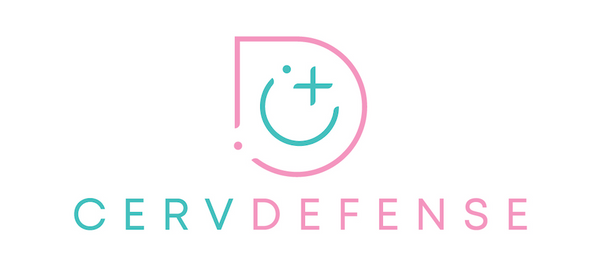Ingredients
Research suggests that women with abnormal cervical cells and cervical cancer may be deficient in many powerful antioxidants and nutrients, which is not known widely amongst allopathic practitioners, despite this information having been published in one of the leading medical journals for gynecologists, The American Journal of Obstetrics and Gynecology, as far back as 1985.
The philosophy behind CervDefense is simple: ensuring your body receives optimum levels of these essential nutrients.
All claims indicated below are from peer reviewed studies. You can learn more about each ingredient from the study each ingredient links to:
- Moducare (Beta-Sitosterol, Beta-Sitosterolin-Beta-D-Glucoside) may help support a healthy immune balance and could help reverse HPV cervical abnormalities.
-
Calcium D-glucarate can be important for the healthy metabolism of estrogen and it can help to support normal cell growth.
- Curcumin can help prevent abnormal cell growth, detoxify cancer-causing forms of estrogen, and enhance progesterone. Curcumin could be a potent antioxidant that can potentially control pathogenic HPV infections. Curcumin may increase the risk of bleeding, especially if you also take blood-thinning medications. Pregnant women and people with gallstones or gallbladder disease should not take curcumin.
- Indole-3-carinbol may stop healthy estrogen from converting into cancer-causing forms. It may be shown to reverse abnormal PAP tests within three menstrual cycles. It may be able to inhibit HPV from causing cancer. It is a phytochemical with potential anticancer efficacy including the reduction of cervical intraepithelial neoplasia and its progression to cervical cancer. Taking this compound as a supplement may interact with other medications, especially hormone-related medications, so ask your doctor if it is safe to eat vegetables (which are mainly cruciferous vegetables) that contain this compound or take it as a supplement.
- Green tea extract may protect against abnormal cell growth; detoxify excess estrogens; and improve treatment response time. Epigallocatechin gallate (EGCG)and polyphenols from green tea showed that it possibly inhibited cervical epithelial and cancer cell growth. In one human study, an extract of green tea was believed tor educe cervical dysplasia caused by infection with HPV. Green tea extract may interact with a number of medications, especially if the tea contains caffeine. People with diabetes and liver disease should also ask their doctors before taking green tea extract.
- Diindolylmethane is an antioxidant that could support the reduction of the risk of cancer.
- Sulforaphane may delay the development of cancer by arresting abnormal cell growth.
- Borage oil is an anti-inflammatory and it could help control negative prostaglandins involved in pain and inflammation. Borage oil has a high level of GLA, which may inhibit pro-inflammatory cytokines and modulate the immune response.
- B Vitamins may help regulate hormones and could support reducing the risk of cervical intraepithelial neoplasia.
- Vitamin C is an antioxidant that could helps to protect cells from damage. VitaminC is essential for collagen synthesis, which is considered important for maintaining the strength and elasticity of cervical tissues. It also has antioxidant properties.
- Beta glucans may strengthen the immune system and enhance T cells and natural killer cells.
- Zinc could help to support the immune system. It plays a vital role in cell division and is extremely important for the optimum functioning of your immune system.
- Vitamin E is another antioxidant that could help protect cells from damage and can help reduce inflammation. One study looked at 168 women with normal Pap smears who did not have an HPV infection and compared them to 228 women with CIN and an HPV infection. For both groups, the researchers measured the blood levels of vitamin E and found that those women with the abnormal smear tests had significantly lower levels of vitamin E.
- Selenium is an antioxidant that could help protect cells from damage. It is also considered important for the immune system and may be protective against several types of cancer. This mineral is often found to be deficient in women with abnormal cells in the cervix.
- Beta carotene (vitamin A) has been found in the blood of women with cervical cancer at only one-half the level of vitamin A compared to women with normal cervical cells. Carotenoids and retinoids have several similar biological activities and could provide antioxidant support.
